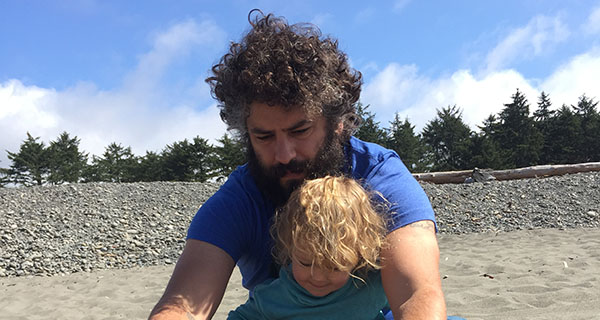
What’s your teaching/writing experience? How did you find Lighthouse?
I remember writing poems in high school to explore the emotional responses I was having to the world I was living in and discovering. I have written poems ever since and likely always will, though I’ve also never limited myself to writing only poetry. My last two manuscripts have been a combination of poetry, memoir, and documentary work, and since the election, I have been working on an essay to try to understand how the United States can be simultaneously such a liberating and devastating place. I have taught writing in a wide variety of formats and locales, and currently teach composition and communications at Johnson and Wales University. I taught creative writing at the University of Denver while working on my Ph.D. (which I received in June), and have led one-day workshops at a community center outside Portland, Oregon. Many of my friends and peers have taught or are teaching at Lighthouse, including my wife (Jennifer Denrow), and I am very excited to join the fold!
[caption id="attachment_9157" align="aligncenter" width="225"] Jesse Morse[/caption]
Jesse Morse[/caption]
Who are some of your major influences? What are the books/authors you turn to for inspiration?
I read widely and variously, but Ted Berrigan and Lorine Niedecker are two poets I have always returned to. Their work is inspiring in so many ways, for very different reasons. I love Julio Cortázar and Roberto Bolaño dearly. John Steinbeck was the first author I set out to read in entirety. The writers that have influenced me the most, however, are the amazing friends and teachers I have been lucky enough to study under, and form a community with, in Denver, Boulder, Portland, and the Bay Area.
You’re teaching a class on Cortázar's Hopscotch this session. Why did you choose this book?
I read Julio Cortázar extensively for my Ph.D. exams and am so very excited to teach his seminal novel. First published in Spanish in 1963, and translated to English in 1966, the novel brought worldwide recognition to the Latin American Boom. Fifty years later, I think the influence of this time period is still great, if somewhat overlooked, and we’ll spend some time discussing Hopscotch’s lasting significance. It is a lengthy book, at times dense, that requires an attention best served, perhaps, in a group setting. Moreover, as it invites a multitude of reading approaches and interpretations, it is a wonderful book for writers. We’ll look at a supplemental essay or two to assist our discussions, but will primarily focus on the novel itself. I hope students are able to walk away from the class with a wider understanding of what comprises a novel, a realization that our individual approaches to reading texts can determine what we receive from them, and either a first step or a deeper plunge into Julio Cortázar’s oeuvre and late 20th century Latin American literature.
[caption id="attachment_9156" align="aligncenter" width="200"] Julio Cortázar[/caption]
Julio Cortázar[/caption]
What do you like to do besides writing?
Writing is my first love, but I spend nearly as much time playing guitar. While living in Portland, I played in a band called The Whirlies, and last summer, we released our first album No Mistakes. Music fulfills a totally separate creative impulse from writing, both equally integral to my well-being. I played basketball religiously growing up, and continue to be an avid sports fan. In fact, I am at work editing an anthology of baseball poems. I hike a lot and have spent weeks at a time in the backcountry. I get the most joy, however, out of spending time with my wife, my two-year-old daughter Wren, and my Labradane Hank!
Jesse Morse's class, Reading as a Writer: Julio Cortázar's Hopscotch, starts January 19.

